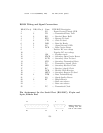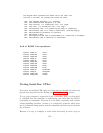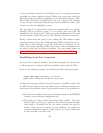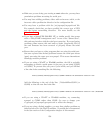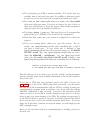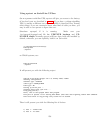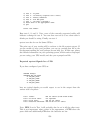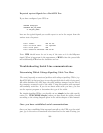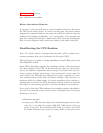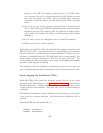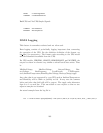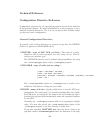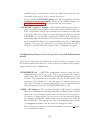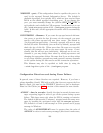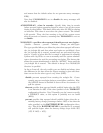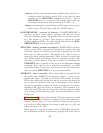Testing Apcupsd) section.
One additional note applies:
Bizarre Intermittent Behavior:
In one case, a user reported that he received random incorrect values from
the UPS in the status output. It turned out that gpm, the mouse control
program for command windows, was using the serial port without using the
standard Unix locking mechanism. As a consequence, both apcupsd and
gpm were reading the serial port. Please ensure that if you are running gpm
that it is not configured with a serial port mouse on the same serial port.
Recalibrating the UPS Runtime
Note: In a future release of apcupsd this procedure will be replaced by a
daemon operation that can be performed on all types of UPS.
This section does not apply to voltage-signalling or dumb UPSes such as the
older BackUPS models.
Smart UPSes internally compute the remaining runtime, and apcupsd uses
the value supplied by the UPS. As the batteries age (after say two or three
years), the runtime computation may no longer be accurate since the bat-
teries no longer hold the same charge. As a consequence, in the event of a
power failure, the UPS and thus apcupsd can report a runtime of 5 min-
utes remaining when in fact only one minute remains. This can lead to a
shutdown before you might expect it, because regardless of the runtime re-
maining that is reported, the UPS will always correctly detect low batteries
and report it, thus causing apcupsd to correctly shutdown your computer.
If you wish to have the UPS recalibrate the remaining runtime calculations,
you can do so manually as the current version of apcupsd does not support
this feature. To do so,
• Shutdown apcupsd
• contact your UPS directly using some terminal program such as mini-
com, tip, or cu with the settings 2400 8N1 (2400 baud, 8 bits, no
parity, 1 stop bit). Be extremely careful what you send to your UPS
as certain characters may cause it to power down or may even cause
161



